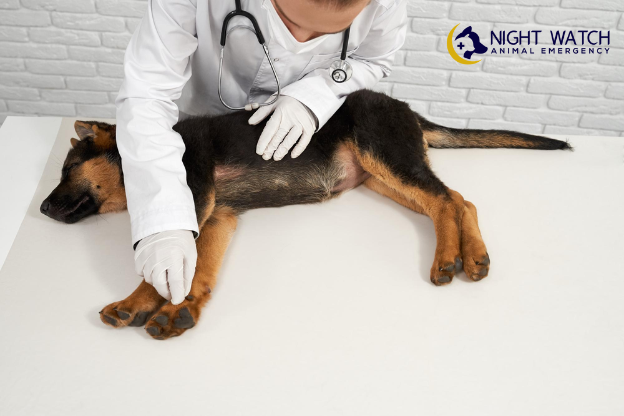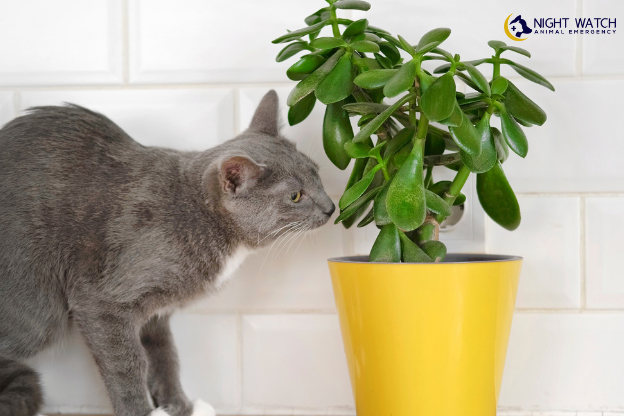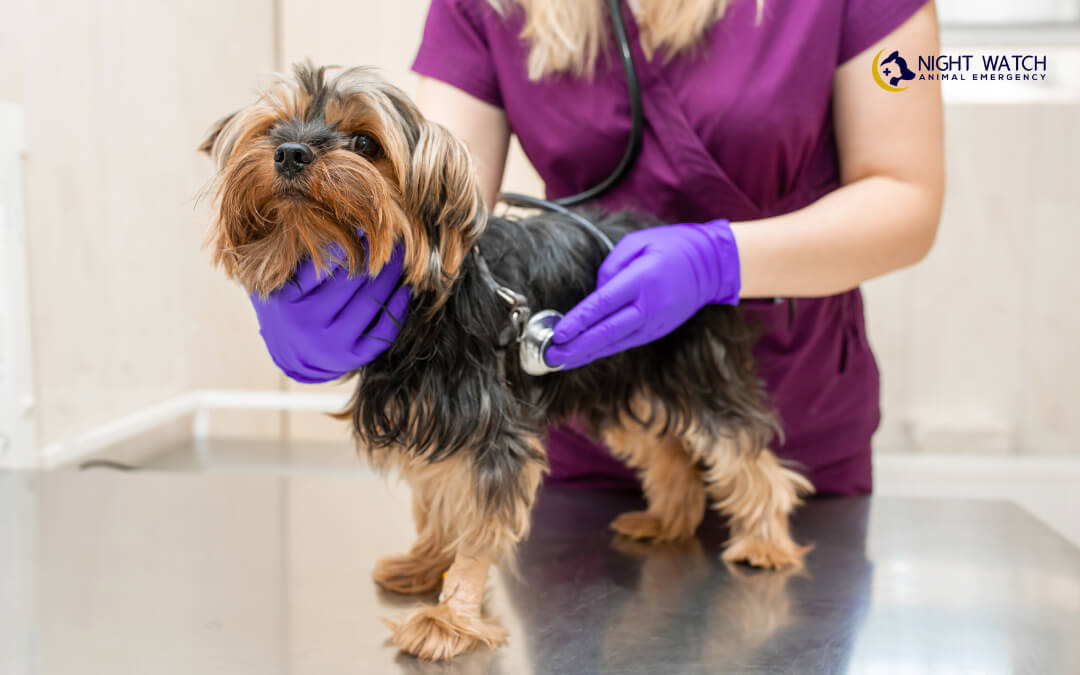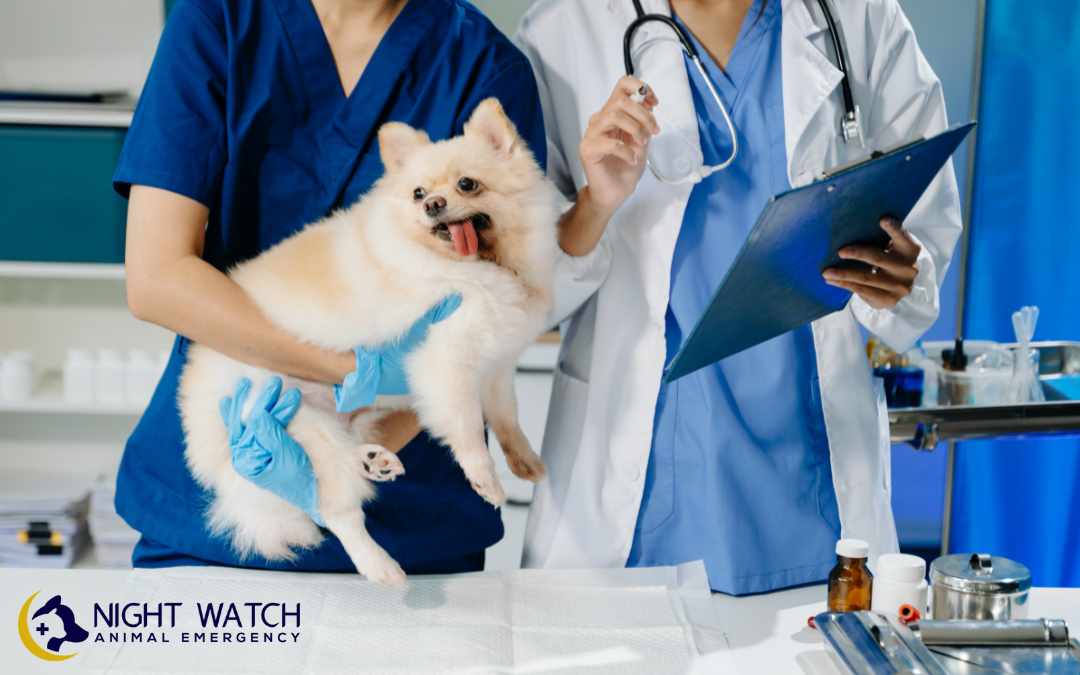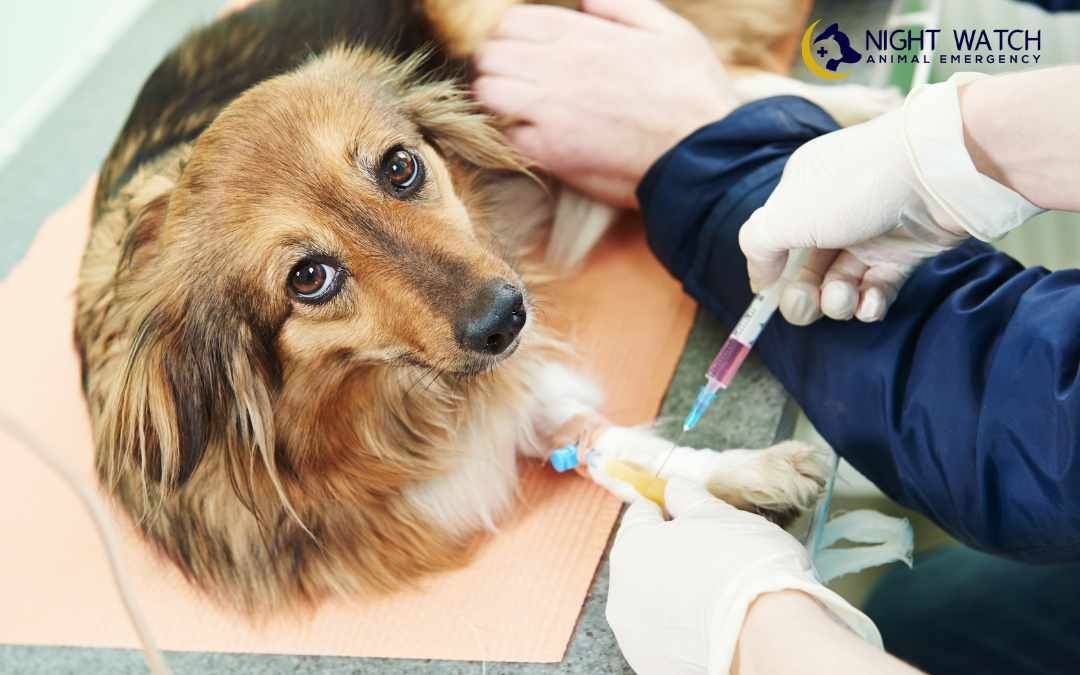If your dog is coughing but breathing normally, acting like themselves, and the cough is mild, it may be safe […]
Read MoreNight Watch Animal Emergency Blog
From Our Blog
Top Household Foods That Can Poison Your Dog — A Quick Safety Guide
Foods toxic to dogs include many common household items, from chocolate and grapes to xylitol and raw dough, that can […]
Read MoreUnderstanding Sudden Blindness in Dogs: Causes, Signs, and Urgent Care Tips
Bloat in dogs, medically known as gastric dilatation-volvulus (GDV), is one of the most dangerous and time-sensitive emergencies a pet […]
Read MoreEmergency Care for Bloat in Dogs: The Signs You Can’t Ignore
Bloat in dogs, medically known as gastric dilatation-volvulus (GDV), is one of the most dangerous and time-sensitive emergencies a pet […]
Read MoreWhy Is My Dog Panting Excessively at Night?
Excessive panting at night in dogs is most commonly caused by heat, anxiety, pain, respiratory issues, or underlying medical emergencies. […]
Read MoreCat Not Eating for 24 Hours? When It Becomes an Emergency
If your cat has not eaten for 24 hours, it can be an early warning sign of a medical emergency, […]
Read MoreWhy Is My Dog Not Eating? Common Causes and When to Seek Emergency Care
If your dog isn’t eating, the most common reason is an underlying medical, dental, or digestive problem that decreases appetite. […]
Read MorePoisonous Plants for Pets: Hidden Dangers Inside and Outside Your Home
Many everyday plants are poisonous to pets, and even small amounts can cause serious health problems. The fastest way to […]
Read MoreWhen to Use Advanced Diagnostic Testing for Your Pet’s Health
Advanced pet diagnostics are recommended when your pet has persistent, unusual, or unexplained symptoms that don’t improve with routine care. […]
Read MoreDecoding Your Pet’s Clinical Pathology Lab Results: What It All Means
When you receive your pet’s pathology test results, it’s normal to feel overwhelmed; these numbers and abbreviations can look like […]
Read MoreWhat Happens Inside a Veterinary Diagnostic Lab – and When Your Pet Needs One
A veterinary diagnostic lab is where veterinarians analyze your pet’s blood, urine, and tissue samples to uncover hidden illnesses, monitor […]
Read MoreHow Routine Blood Tests Detect Hidden Health Issues in Pets
Routine pet blood work is one of the most valuable tools your veterinarian has for protecting your dog or cat’s […]
Read More



